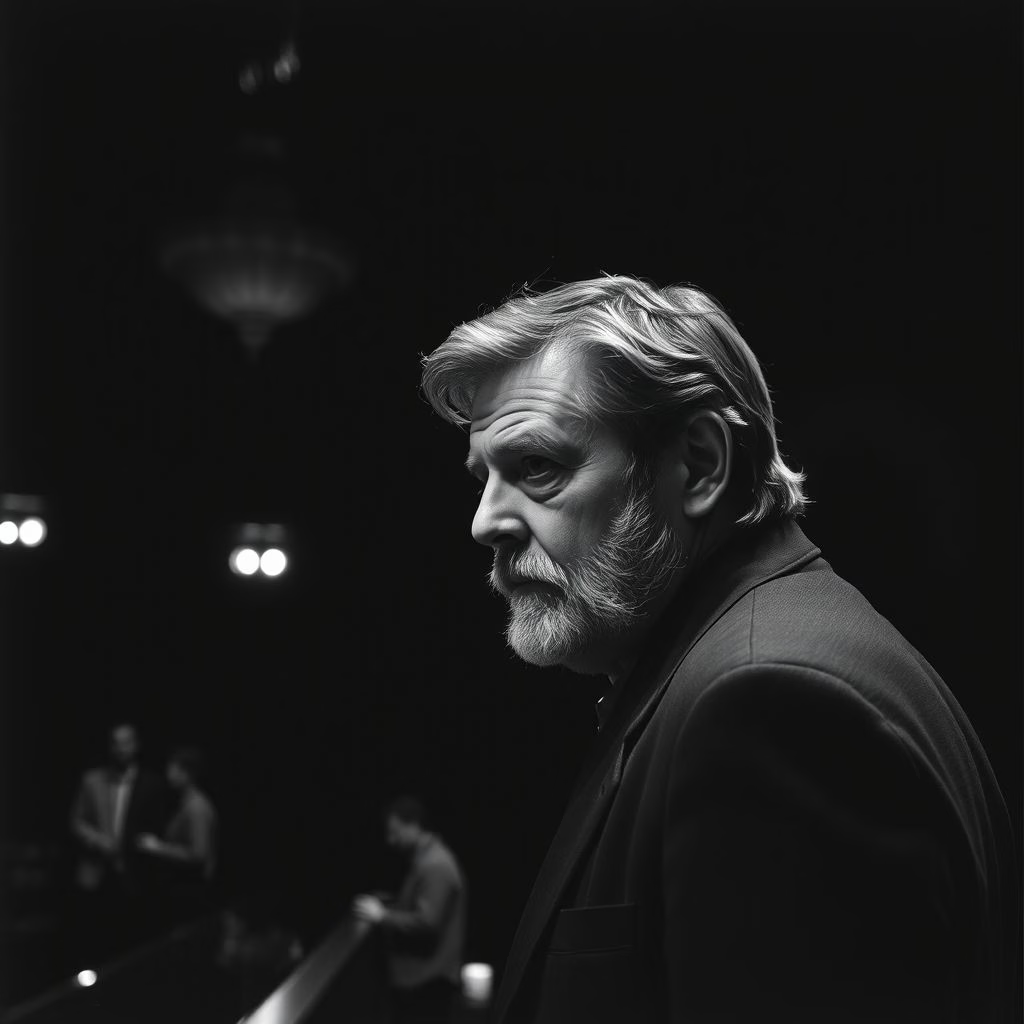The Razor’s Edge: Unpacking the Worlds of David Mamet

David Mamet. The name itself conjures images of sharp dialogue, morally ambiguous characters, and a gritty realism that has resonated with audiences for decades. He’s a playwright, screenwriter, essayist, and director—a true polymath whose work spans theatre, film, and literature. But what is it about Mamet’s distinct voice that has captured the attention of critics and viewers alike? This post delves into the core of Mamet’s artistic universe, exploring his signature style, key themes, and enduring impact on contemporary culture.
The Mamet Method: Language as Weapon
At the heart of Mamet’s artistry lies his masterful use of language. His dialogue is known for its staccato rhythms, overlapping conversations, and a naturalistic flow that often reflects the way people *actually* speak. This unique style, often referred to as “Mamet-speak,” eschews flowery prose in favor of raw, often profane, and always compelling exchanges. It’s a language that strips away pretense, revealing the hidden motivations and vulnerabilities of his characters. Consider the iconic card game scenes in Glengarry Glen Ross, where the characters’ desperation and ruthlessness are laid bare through clipped, urgent dialogue.
Mamet’s approach to language isn’t simply about realism; it’s a strategic tool. He uses it to build tension, expose power dynamics, and create moments of startling clarity. Characters often speak at cross-purposes, employing manipulation and misdirection. The audience, too, must decipher the subtext, reading between the lines to understand the true stakes of each scene.
Recurring Themes: The American Dream, Masculinity, and Moral Ambiguity
Several thematic threads weave throughout Mamet’s body of work. One prominent theme is the corruption and disillusionment inherent in the pursuit of the American Dream. Works like Glengarry Glen Ross and American Buffalo explore the desperation and moral compromises that individuals make in the face of economic pressure. The characters in these plays are often driven by greed, ambition, and a desire for financial success, leading them down dark and destructive paths.
Another crucial theme is the examination of masculinity. Mamet’s plays frequently feature male characters grappling with issues of power, identity, and vulnerability. He explores the codes of conduct that govern male relationships, the pressures to conform, and the consequences of failing to live up to these expectations. His characters, whether hustlers, con men, or businessmen, often find themselves trapped in cycles of aggression and self-deception.
Furthermore, Mamet’s work is marked by a pervasive moral ambiguity. His characters are rarely purely good or evil; they exist in a gray area, making choices with complex consequences. He challenges audiences to question their own values and assumptions, forcing them to confront the complexities of human behavior. This refusal to offer easy answers is one of the hallmarks of Mamet’s enduring appeal.
Key Works and Their Impact
Mamet’s influence is undeniable. His plays, including Glengarry Glen Ross, Oleanna, and American Buffalo, have become staples of the modern theater repertoire. These works have been praised for their powerful storytelling, sharp characterizations, and innovative use of language.
In film, Mamet has garnered critical acclaim for his screenplays for movies such as The Postman Always Rings Twice (1981), The Untouchables (1987) (directed by Brian De Palma), and Wag the Dog (1997). He also directed several films himself, including House of Games (1987) and State and Main (2000), demonstrating his versatility as a filmmaker. Through his work, Mamet has helped shape the landscape of contemporary theatre and cinema, influencing generations of writers, directors, and actors.
His contributions to film have earned him a well-deserved place in Hollywood history. Although initially based in **Chicago**, his career has taken him to every corner of the United States and even overseas. His ability to capture the nuances of human interaction in places like the fictionalized **Glengarry Highlands** and portray the inner workings of the characters that reside there is an aspect of his genius.
Beyond the Stage and Screen: Mamet’s Broader Influence
Mamet’s influence extends beyond the realms of theatre and film. He is also a prolific essayist and author, tackling subjects ranging from politics and culture to art and philosophy. His books offer a window into his intellectual and artistic process, providing insights into his writing style and his perspectives on the world. Through his diverse body of work, Mamet continues to challenge and provoke audiences, making him a relevant and vital voice in contemporary culture.
Whether you are familiar with his work or new to the world of Mamet, there is no doubt his work is timeless. The themes of ambition, deception, and morality that Mamet explores will continue to resonate with future generations. His ability to capture the realities of the human condition with such skill is what makes him so valuable.
The legacy of David Mamet is secure. His work continues to challenge, intrigue, and, above all, entertain.




